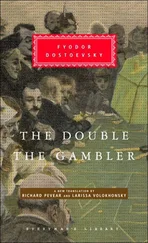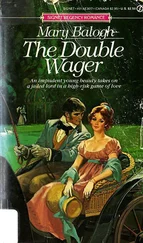Laurel had been awake for close to three hours by the time the two of them had breakfast a little past eight. She had told her mother about all of the photographs Bobbie had left behind, with the exception of the one of the girl on the bike. She had shared with no one her suspicions of who the cyclist might have been; the very idea that she was revisiting this part of her life would have profoundly alarmed Ellen Estabrook.
Her mother had already informed her that she knew almost nothing about Pamela Marshfield, and so they spoke mostly about the trip on which Ellen was embarking that Saturday for Tuscany. This was something else that had emerged since her husband had died: A passion for travel. Laurel ’s parents had been to Italy once before, but it had been decades ago and they had spent most of their time in Rome. Now Laurel ’s mother was going with a girlfriend to a Tuscan cooking school just outside of Siena for two weeks.
When Laurel was putting her coffee mug in the dishwasher before heading upstairs to brush her teeth before leaving, her mother cornered her. “Be careful, sweetheart,” she said. “I know some people around here think the Buchanans were this sad, cursed little family. Even your aunt believes that. But I don’t. I think they were all pretty creepy.”
Laurel studied her mother. The woman was wearing a delicate black cotton T-shirt with scalloped edging around the collar. Clearly, it had cost a bundle at Bergdorf’s. She considered briefly making a joke about being attacked by a geriatric who had to be in her mid-eighties, but she restrained herself. Neither of them was capable of verbalizing the word attack in any context other than out-and-out warfare. The two of them rarely talked about that period when Laurel was living at home after the assault, even on the anniversary. Her mother worried often about her daughter’s safety and the wounds that remained from a very close call, and Laurel knew discussing it with her only made it worse.
“Well, Pamela’s father was, I guess,” Laurel said instead.
“Her mother was awful, too. Don’t forget: It was her mother, Daisy, who actually killed that poor woman. Ran her over and left her to die in the street. Your father always said that if Myrtle Wilson’s sister had been better educated-or more litigious-she would have sued Daisy in a wrongful death lawsuit.”
“I don’t think she’s going to run me over. I don’t even think she drives anymore.”
Instantly, she regretted her glibness. Her mother took a long sip of her coffee, and Laurel could tell she was envisioning, once more, her daughter clipped to her bicycle while two men backed over her before speeding away. “She’s richer than God,” her mother continued after a moment, recovering. “But she never gave a cent to any of the charitable projects your father worked on. Not even the orphanage. He himself went to her house one afternoon and was part of the ask. That’s what they call it in fund-raising, you know. The ask . She agreed to see him and someone else from the Rotary. It might have been Chuck Haller. But she was absolutely unreceptive when they arrived. Uninterested in the whole endeavor. Your father had no idea why she took the time to see them.”
“How long ago did Mr. Marshfield pass away?”
“Not long after they sold the house. Twenty-five or twenty-six years ago, I guess.”
“Why do you think they never had any children?”
“Oh, I couldn’t begin to answer that one. Maybe they couldn’t. Maybe they didn’t want any,” her mother said. She raised her eyebrows and added melodramatically, “Maybe they knew enough not to continue the demon seed.”
Laurel smiled and watched her mother as she girlishly checked the post on one of her earrings with her forefinger and thumb. Then she leaned forward, kissing Laurel on the cheek and purring, “Ummm. Chlorine. I love the smell of chlorine in your hair. It makes me think you’re still my little girl.”
“Is it that apparent?”
“The chlorine? Only if she gets very close. And I don’t believe she gets very close to anyone.”
Laurel was returning to Vermont the next day and she didn’t know if her mother had something special in mind for them for dinner: Her sister, Carol, was joining them that evening. And so she asked if there was anything in particular she should pick up on the way home.
“Nope. You just drive safely. And-and I mean this-stay on your toes around that woman.”
“You’re really worried about me, aren’t you?”
“I guess a little. I don’t like that family. And, yes, I don’t like you getting so caught up in this fellow’s work. There’s that, too. It makes me a little anxious. I know…”
“You know what?”
“I know how seriously you take your job. I know how much you care about the people who come to the shelter.”
“You don’t need to worry, Mom. I liked Bobbie, and I’ve been impressed by the work he left behind. I want to understand how he wound up at BEDS. But at this point it’s all just academic curiosity.”
Laurel felt her mother’s fingers entwining themselves among hers, the older woman’s slim and elegant hands squeezing hers softly. Her mother gave her a fretful, tender smile. Laurel honestly couldn’t tell whether she was more concerned that her brittle little girl was involving herself in a project that was going to upset her, or whether this instinctive maternal concern was grounded firmly in what she knew about Pamela Buchanan Marshfield.
AMONG LAUREL ’S FIRST THOUGHTS? Mrs. Winston was completely mistaken: Pamela Marshfield didn’t need or want to be carried anywhere. The woman was elderly, but she was far from frail. Like her brother, she was in astonishing shape for someone so old. Say what you will about the Buchanans, Laurel thought when she first laid eyes on Pamela, it was one hell of a good gene pool. The woman was eighty-six, but she was formidable, entitled, and confident-and just caustic enough to keep Laurel uncomfortable. The social worker kept her guard up, because it was clear that Pamela never let hers down.
“I’m surprised it took me so long to extricate myself from the North Shore,” she said soon after Laurel had arrived in East Hampton. She was wearing a sleeveless white blouse that revealed the seashell-sharp points of her collarbone, and a flowered skirt that fell almost to the Italian tile on the terrace where they were sipping their tea. A manicured swath of lawn perhaps two hundred yards wide separated the terrace from the beach. The sea was calm, and the waves at the shore were more ripples than breakers: a bucket of foamy water overturned on a suburban driveway. “I never get back there.”
She was gaunt in the way that many wealthy, elderly women are: Her skin was pulled back tight from her eyes, but it hung like drapes from her upper arms and her neck. Her hair was the white and gray of old fireplace ash, and it was cut as short as a man’s. Laurel saw white patches on her arms and the backs of her hands where once she presumed there had been moles and age spots and precancerous growths.
“I liked growing up there,” said Laurel. “I don’t expect to settle in West Egg-”
“No one settles in West Egg,” the old woman said with a slight, dismissive sweep of her hand. “The very word, settlement, implies a pioneering spirit and a desire to put roots into the ground. There are no roots there. People pass through there as they…climb. It has always been that way.”
Laurel understood the reference: West Egg had never been as fashionable as East Egg-it had always been a world of newer money-and like Tom and Daisy, Pamela Marshfield seemed to view everyone who lived on the other side of the cove as a Gatsby-like interloper.
“My family has always been happy enough there,” Laurel said, hoping she sounded serene and self-possessed.
Читать дальше












